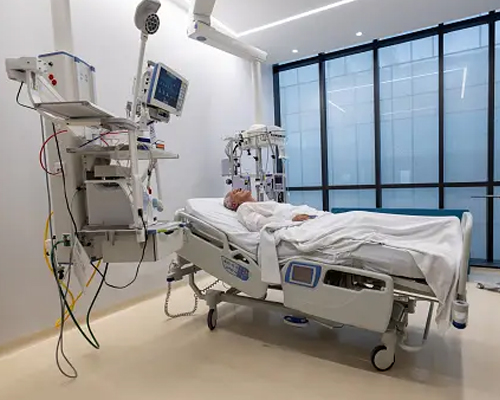-
 24/7 Medical Service
24/7 Medical Service
-
 24/7 Ambulance Service
24/7 Ambulance Service
-
 Emergency Service - 88753 00042
Emergency Service - 88753 00042
 24/7 Medical Service
24/7 Medical Service
 24/7 Ambulance Service
24/7 Ambulance Service
 Emergency Service - 88753 00042
Emergency Service - 88753 00042

The Intensive Care Unit (ICU) is a separate, self-contained area within a medical facility, equipped with high-tech specialised facilities designed for close monitoring, rapid intervention and often extended treatment of patients with acute organ dysfunction. It is committed to the management and continuous monitoring of patients with life-threatening conditions. intensive care aims to maintain vital functions to prevent further physiological deterioration, reduce mortality and prevent morbidity in critically ill patients. Provision of intensive care is within the continuum of primary, secondary and tertiary care, with the majority of these services delivered in the secondary-care setting.
Types of Intensive Care Units (ICUs)
Intensive care units can be organised based on the pathologies/conditions treated (e.g. neurological, trauma, burns, medical or surgical ICUs)
Medical intensive care unit
The medical intensive care unit is dedicated to caring for adult patients with medical conditions requiring frequent observation, specialized monitoring and medical treatment. These include illnesses such as diabetic ketoacidosis, gastrointestinal bleeding, drug overdose, respiratory failure, sepsis, stroke and cancer.
Surgical intensive care unit
The surgical intensive care unit is dedicated to managing postoperative patients, including patients who have undergone major abdominal surgeries, craniotomy patients, thoracotomy patients, unstable multiple trauma patients and any surgical patient who requires continuous monitoring or life support.
Our ICU teams are multi-disciplinary, made up of highly skilled intensive care nurses, doctors and specialists trained in providing critical care for patients with a variety of medical, surgical and trauma conditions.